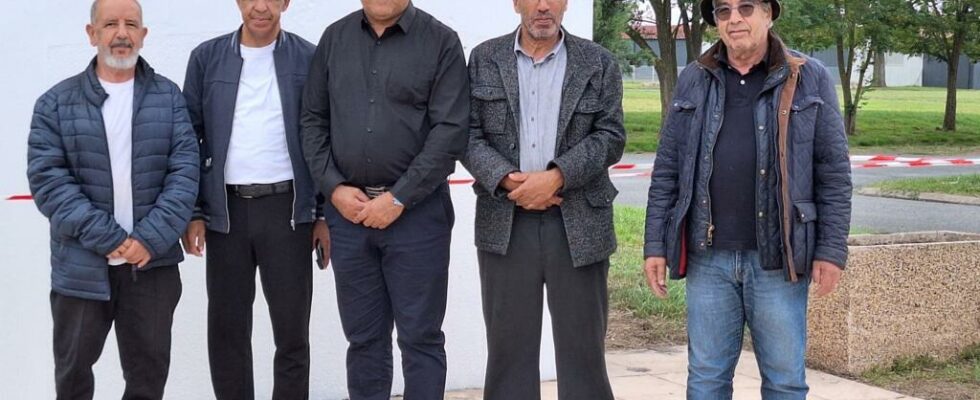Sixty years after the end of the Algerian War, descendants of harkis continue to fight for recognition and compensation for the harm suffered by their community. Report from the Bias camp in the south of France.
Of the Bias camp, almost nothing remains, just two vacant lots, a few pavilions and administrative buildings on either side of the entrance. In 1975, it was from this camp that the revolt began that led to the dismantling of the harkis camps in France. Of the more than 160,000 harkis who enlisted in the ranks of the French army during the Algerian War, nearly 80,000 of them took refuge in France to escape reprisals from the FLN. But when they arrived in mainland France, disillusionment, isolation and poor living conditions awaited them.
” Here was the main entrance. There were big fences, very high, with barbed wire all around and fir trees, remembers André Azni, president of the association Les Harkis et leurs amis. So here is the central alley where there were vertical buildings, like this. Then, in order to erase the memory of the camps, they built these little pavilions that look like nothing. »
Located near the village of Bias, the camp is well hidden from view by lush vegetation. For several years, the harkis had almost no contact with the outside world. Larbi Bouzaboun was one year old when his family arrived at the Bias camp, where he lived for 15 years. A traumatic experience according to him: ” When you are a child and you grow up in a concentration camp, I weigh my words carefully, you cannot develop like a child, normally, of course you are traumatized. You are shocked. School failure was mapped out. When you arrive in CM2, even with 18 On average, you were made to repeat two years, three years… So, how do you expect us to be able to evolve like any other French citizen? It’s impossible! »
Also listen toHarkis in Algeria
If this descendant of harkis was lucky enough to leave the Bias camp at the age of 16, this was not the case for Malika Belfoule. The mother, who still lives there, makes a point of honor to speak to her children about the history of the harkis. The harkis, you have to be proud. I told them : “It’s not a shame.” I say : “Grandpa, it was De Gaulle who brought him, he didn’t come alone.” And look at the result, what they did to us. When you see that the people who came today, they have everything they know. Whereas our parents, it was De Gaulle who brought them. But he brought them betrayed, in fact, in the end. I am proud to be Arab, but I am French at 100% and I claim it. And I’m proud of my father. »
Whether they left the camp or not, today the descendants’ goal is to make the history of the harkis known. We fought for several years for reparation and recognition, recalls Boaza Gasmi, from the National Liaison Committee of Harkis (CNLH). But today, it is high time to talk about memory so that the French citizen knows the whole truth about our history. We want this history to be known in universities, in high schools, in middle schools, in primary schools, and so on. »
The Harkis of Bias have been demanding a place of remembrance on this emblematic site for years.
